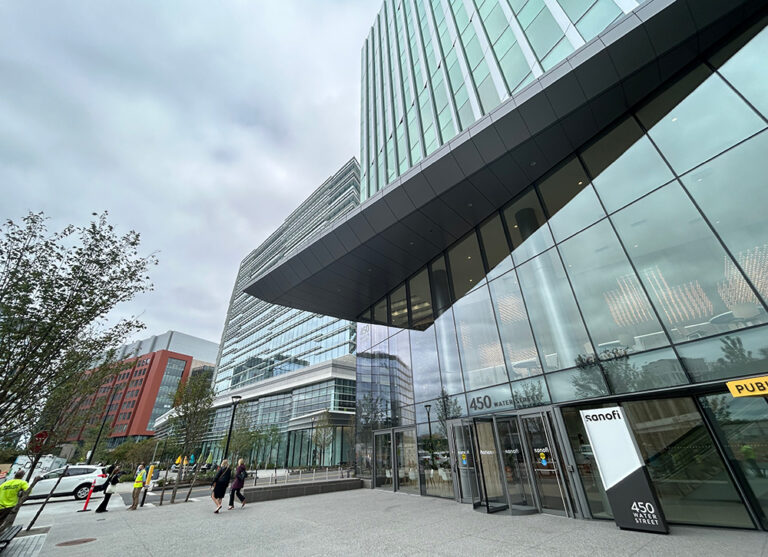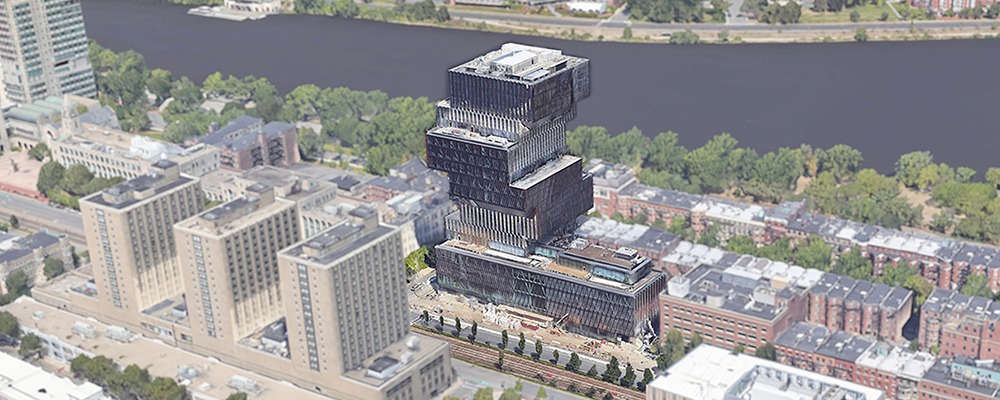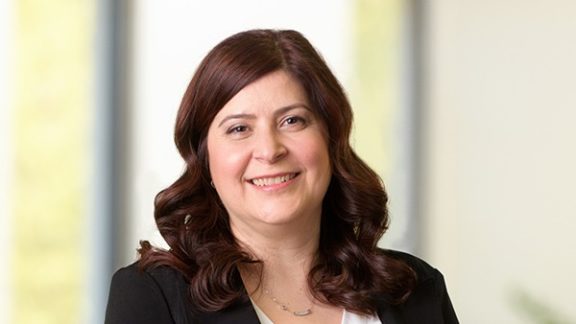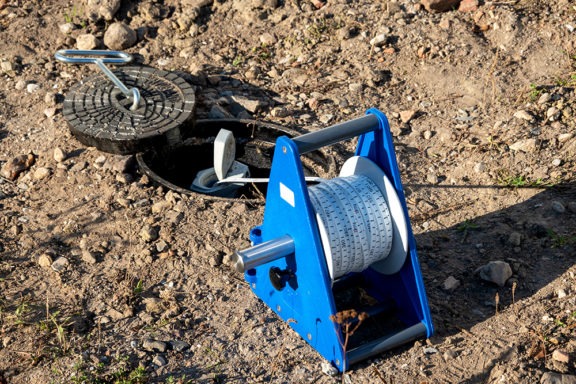Burlington, Mass., June 2, 2023 — The Environmental Business Council (EBC) of New England has honored two Haley & Aldrich projects this year. Boston University’s Center for Computing & Data Sciences (CCDS) earned the 2023 Ruth H. Silman Award for Climate Change Project of the Year, and the mixed-use Cambridge Crossing development received the Nicholas Humber Award for Outstanding Collaboration.
Haley & Aldrich provided geothermal system installation, as well as geotechnical and environmental services, for the CCDS, which became Boston’s largest fossil-fuel-free building when it opened in 2022. It is also Boston University’s first certified on-campus LEED Platinum building. Our engineers contributed to these milestones by designing and installing the building’s geothermal system, which covers roughly 90% of the 19-story, 345,000-square-foot building’s heating and cooling needs. They worked alongside a team of architecture, contracting, and engineering firms that included KPMB, Suffolk Construction, Compass, BR+A, Rygan (manufacturer of the geothermal closed loops) and Skillings & Sons.
“Boston University had inspiring goals for this building — they committed to a challenging renewable energy vision that would stand the test of time and serve as an example to other projects in the city,” says John Kastrinos, the hydrogeologist who led the Haley & Aldrich team.
For the Cambridge Crossing development, Haley & Aldrich provided geotechnical and environmental consulting on the redevelopment of a challenging 43-acre site at the juncture of Boston, Cambridge, and Somerville. The ground conditions included poor-quality urban fill, buried historic structures and walls, and unusually variable geology. Our team developed solutions to the unique challenges of each parcel and drew on our rapport with agencies and municipalities to expedite project timelines.

The Cambridge Crossing team involved dozens of collaborators, including Haley & Aldrich client DivcoWest, multiple design teams, construction managers, and local and state agencies. Haley & Aldrich’s Kelvin Wong says, “This neighborhood-scale project had no choice but to embody a collaborative spirit. We had so many individual parcels with different needs and challenges, but then we also balanced how they all fit together spatially and sequentially. We relied heavily on each other’s input to reach a unified goal: successfully delivering an inviting, accessible, and vibrant urban center.”
The Haley & Aldrich teams credit strong collaboration, in addition to technical rigor, for the success of both endeavors. “All of the Haley & Aldrich partners on these projects greatly appreciated the opportunity to support our clients and help them achieve their goals,” says Principal Consultant Bryan Sweeney, the principal for both developments. “It’s meaningful to work together on new landmarks for the city, especially projects that aim to lead it toward a more resilient, people- and planet-friendly future.”
About the award-winning projects
The EBC’s annual awards program recognizes “outstanding accomplishment” to “encourage companies, government agencies, non-profit organizations, and environmental professionals to serve as models for others to emulate,” according to the organization.
The CCDS — nicknamed the Jenga Building for its staggered floors — earned the Climate Change Project of the Year because of its many features that “prioritized climate resiliency and mitigation, including a 6% reduction in embodied carbon,” notes the EBC. The geothermal system is chief among these features, which also include electricity partially provided by solar power and matched by the BU Wind project in South Dakota, green roofs, and triple-glazed windows to reduce heat loss.
On a redeveloped former industrial site, Cambridge Crossing provides 43 acres of urban green space, easy access to transit, state-of-the-art lab facilities and residences, and restaurants and shops. It involved extensive infrastructure improvements that required the project teams to work closely “with the MBTA on the relocation of Lechmere Station, with MWRA on sewer considerations, with MassDOT on Gilmore Bridge access and improvements to the O’Brien Highway, and with the cities of Cambridge, Somerville, and Boston to connect their neighborhoods through pedestrian and bike paths,” notes the EBC.
Haley & Aldrich team members will accept the awards at a ceremony in June.
For more information:
Contact our Media team.




